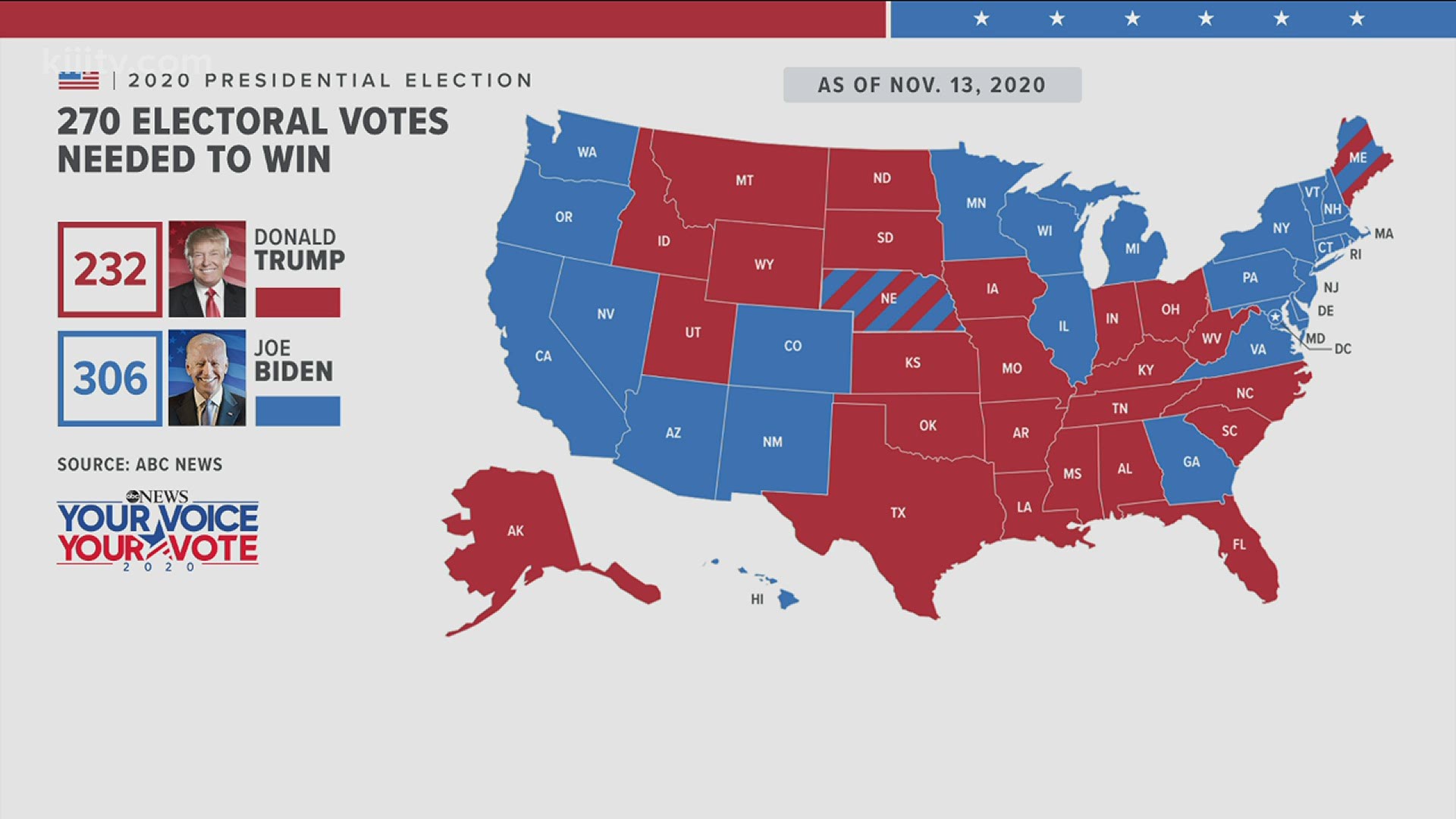CORPUS CHRISTI, Texas — Right now, the United States has both, a President and President-Elect. Similar names, but different roles. The President-Elect holds that unofficial title for only a short amount of time before they are sworn into office on Inauguration Day.
"The person that was clearly going to be the winner in the interim period between the election which we held in early November, and then the actual swearing in January 20th," said Travis Braidwood, a political science professor of Texas A&M Kingsville.
When a presidential candidate becomes President-Rlect, only a few changes come with the new title. At least until they become the President of the United States of America.
"The power that comes with being President-Elect begins when you are the presumptive president elect and are declared to be the presumptive President elect by the general services administration. That power is fairly small. It just means that you get access to intelligence briefings, you get increased security protection, and you get some funding for your transition fee," said Dr. Bill Chriss, a political and legal analyst.
Traditionally, the President-Elect, and President would work together on the move.
"Formally they're supposed to work with the outgoing administration to coordinate the transition," said Braidwood.
Experts said, President Trump has his mind made up, but once Biden is sworn in:
"I don't think President Trump is ever gonna concede, but he doesn't need to concede. All he needs to do is vacate the premises," Dr. Chriss added.
In January, President-Elect Joe Biden is set to become the 46th President of the United States of America.

